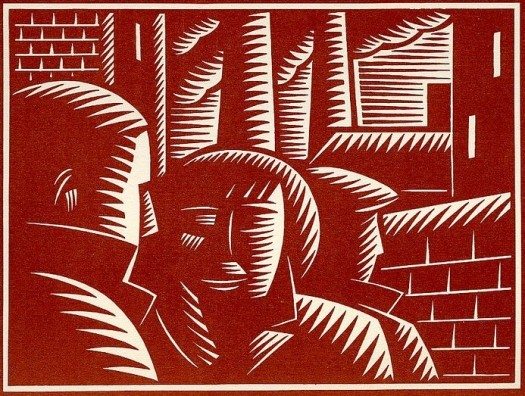
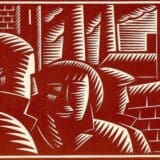
Why Labor Organizing Should be a Civil Right: Rebuilding a Middle-Class Democracy by Enhancing Worker Voice, by Moshe Z. Marvit and Richard D. Kahlenberg, was released last year to critical and academic acclaim but not nearly enough attention. The book, whose authors are both fellows at the progressive think tank the Century Foundation, lays out a simple, brilliant idea: to amend the Civil Rights Act so that it prohibits discriminating against workers for attempting to organize a union.
We recently had a chance to pick the authors’ brains about the inspiration for the book, how the legislation would work and why this is an idea whose time has come.
Feldner-Shaw: For those who haven’t heard about it, can you briefly describe the premise or thesis of the book?
Marvit and Kahlenberg: As the title suggests, the book Why Labor Organizing Should be a Civil Right makes the argument that labor activities are a civil right and should be treated as such by our laws.
» Read more about: Should Labor Organizing Be a Civil Right? »
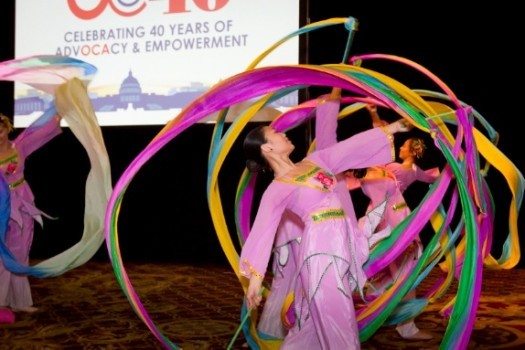
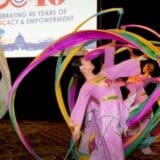
Not only does Walmart set the wholesale market price for many of the products and food commodities sold in its stores, it also apparently commands the unswerving political loyalty of some of the nonprofit groups that the retail giant underwrites. The Nation’s Lee Fang writes about how a trio of interns ran afoul of OCA Asian Pacific American Advocates (formerly known as the Organization of Chinese Americans), a prominent Asian American civil rights group, for displaying disrespect to Walmart — a large OCA funder. The story played out in Las Vegas last month during OCA’s annual convention, when one intern was rebuked by OCA staff for criticizing Walmart’s drive to open a grocery market in Los Angeles’ historic Chinatown. She and two colleagues were later booted out of the convention when a private video they’d made of flipping off Walmart made its way onto a public Facebook page.
» Read more about: Walmart Casts a Shadow on Civil Rights Group’s Convention »


It’s August, and Americans by the millions are cramming themselves into coach-class seats as they embark on their summer vacations. Those able to learn from adversity might ponder this: Airline seating may be the best concrete expression of what’s happened to the economy in recent decades.
Airlines are sparing no expense these days to enlarge, upgrade and increase the price of their first-class and business-class seating. As the space and dollars devoted to the front of the planes increase, something else has to be diminished, and, as multitudes of travelers can attest, it’s the experience of flying coach. The joys of air travel — once common to all who flew — have been redistributed upward and are now reserved for the well-heeled few.
The new business-class seats that Lufthansa is installing convert to quasi-beds that are six-feet six-inches long and two feet wide, the New York Times’ Jad Mouawad reports.
» Read more about: Economic Inequality: The Sky’s Not the Limit »
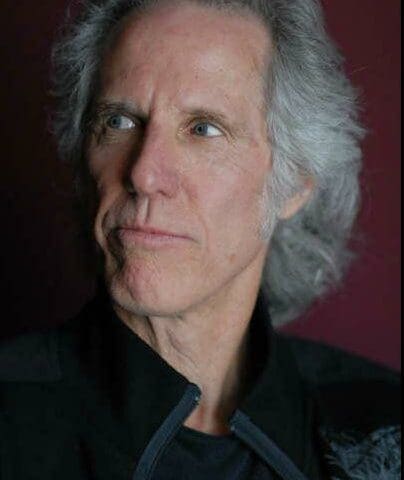
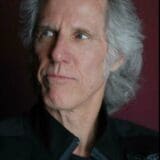
An interview with John Densmore is less a linear dialogue and more a jazz improvisation, with unexpected twists and turns and no clear beginning or end. Which is not to say that the Doors’ drummer is without a steady beat — this is a man determined to drive home his message about the corrosive effects of greed. Densmore’s convictions led him to sue his former bandmates, Ray Manzarek and Robby Krieger, for trying to tour under the name “The Doors of the 21st Century” and using the band’s logo.
Densmore prevailed, but not without a bruising battle that created a bitter divide between the artists who once teamed with Jim Morrison on one of the greatest rock and roll bands in history. The story of that clash is the subject of Densmore’s latest book, The Doors Unhinged: Jim Morrison’s Legacy Goes to Trial.
Frying Pan News caught up with Densmore recently and riffed with him about what he calls “The Greed Gene,” Morrison’s views on money and his reconciliation with Manzarek before the keyboardist’s death earlier this year.
» Read more about: The Doors’ John Densmore Beats the Drum Against Greed »


In the Food Network’s popular show, Restaurant Impossible, star Robert Irvine visits a failing restaurant that is poorly managed, has depressing décor, and which serves inedible food. He and his staff completely transform the business, and by show’s end there are hugs and smiles all around. Many of the restaurants Irvine visits are completely unsanitary. In a recent episode, Irvine told the owners that their place had “over 500 health code violations.” He said the kitchen was so disgusting that he would not even try the food, and told diners that they were eating at their own risk.
But neither Irvine nor the Food Network reported the establishment to the local health department. Nor did they ask how such a “disgusting” kitchen could have gone uninspected by city officials, or raise alarms as to the likelihood there were many other restaurants in the city also endangering their customers’ health.
» Read more about: Why ‘Restaurant Impossible’ Blows the Wrong Whistle »


you want dogs? I walked all four shepherds
in the park, by day and dark
and nobody dared come near; bark?
all they had to do was walk,
the four big shepherds in the park
love? you want love? I hardly miss her;
but her dogs I walked
by day and dark, yes,
I miss the dogs, the four
big shepherds in the park.
——————————————————–——————————————————–
Source: Intensifications, published by Red Hen Press (2010).
Originally from Brooklyn, N.Y., Austin Straus has been drawing and painting since childhood, but began writing seriously in his mid-thirties. His poems and illustrations have appeared in such literary magazines and anthologies as Caliban, Grand Passion, Jacaranda Review, Red Dance Floor and The Maverick Poets. Known as the host of KPFK’s The Poetry Connexion,
Imagine a Mexican father telling his child that he’s leaving for America. He probably wouldn’t spend a lot of time explaining the complicated economic and political relationship between Mexico and the U.S., nor would he spend a lot of time explaining how difficult and dangerous the journey to el norte would be.
It would be a simple explanation, in all likelihood: “I have to go north to find work to earn money for my family.”
The children’s story Pancho Rabbit and the Coyote by Duncan Tonatiuh starts with a statement much like that. Like so many Mexican workers, Pancho Rabbit’s father decides go to north because of lack of work at home – “The rains did not come and the crops would not grow.”
Papá Rabbit, along with companions including Señor Ram and Señor Rooster, leave at the beginning of the story. The story is told from the point of view of Papá Rabbit’s family,


Every year Walmart holds a combination shareholder meeting and pep rally to whip up enthusiasm and promote its image as a good investment and a good corporate citizen. These huge events have the quality of a religious revival meeting, including testimonials and music to keep its stockholders and employees (whom Walmart calls “associates”) enthralled. Women’s Wear Daily called last month’s event, with 14,000 shareholders and employees, “a high-octane, entertainment-filled spectacle with moments devoted to business.”
The company always invites celebrities to entertain and mingle. At last month’s gathering in Bentonville, Arkansas — the company’s headquarters — singers Kelly Clarkson, Jennifer Hudson, John Legend, and Prince Royce performed, Hugh Jackman emceed, and Tom Cruise cruised the crowd, then mounted the stage and said: “I’ve wanted to come here for quite some time, actually because the culture you have here is like no other. I truly admire your company. [It’s] a role model for how business can address some of the biggest issues facing our world.”
» Read more about: Walmart Celebrities: Which Side Are You On? »


I grew up playing soccer and everyone I knew played it. It was the highlight of the week – AYSO owned my city, Ventura, and most cities across Southern California. So I never understood why most Americans don’t love soccer the way the rest of the world does. Until last Sunday.
Of course, I’d heard all of the usual complaints. “It’s a low-scoring, boring, non-physical game.” Is it “low-scoring”? Well, from the American perspective, it is. The average final score is about 2 to 1. But American football could be a low scoring game if touchdowns only gave a team one point instead of six. Football allows for three points just for kicking a ball between two posts.
But is it “boring”? Absolutely not! Who can forget when France’s Zinedine Zidane was sent off the 2006 World Cup final game for head-butting Italy’s Marco Materazzi‘s chest in retaliation to his verbal insults of Zidane’s sister.


Valley after valley,
as if some primeval fiend
dragged its talons here
as it fell from the coastal shelf.
Eighty years ago, after the gold
and copper towns ghosted,
before Gunsmoke came to Vasquez Rocks,
William Mulholland’s dam gave out
and flushed the canyons clean
54 miles to Ventura, and the ocean.
We’ve seeped in, bloomed
like thrush in hollows
flecked with rust-capped roofs,
and bone-white stucco.
Now, across the 14’s eight lanes,
vast scabs of sooty earth
and blacker scrub proclaim:
the land finds ways to slough infection.
——————————————————–——————————————————–
David Eadington is a fifth-generation Southern Californian who lives in West L.A. His work has appeared in several places, including Xelas Magazine and Check Other. He was named one of Los Angeles’
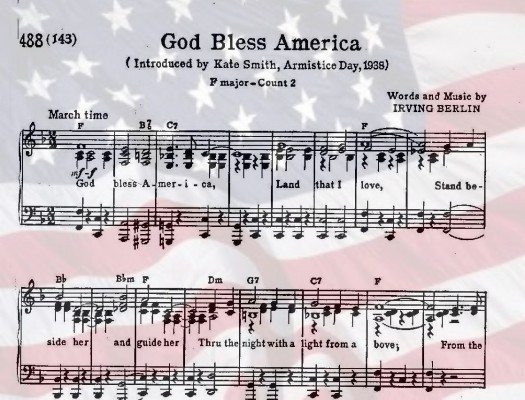

News that George Zimmerman (a “white Latino”) got away with shooting and killing Trayvon Martin, a black teenager armed with nothing more than a bag of Skittles, brought joy to many conservatives. Some went so far as to say “God Bless George Zimmerman.”
Less than 24 hours before the Zimmerman verdict, Grammy-winning singer Marc Anthony, a dark-skinned Latino, was viciously lambasted — for having had the audacity to sing ‘God Bless America’ at Major League Baseball’s All Star Game. One tweeted “Why is some Spanish fuck singing ‘God Bless America’ at the all-star game?” Another wrote, “C’mon MLB. How you gonna pick a Mexican to sing ‘God Bless America’? Was Castro unavailable?”
Anthony happens to be a born-and-bred American citizen of Puerto Rican descent.
This was as ironic as it was painful, seeing as how Irving Berlin, one of America’s greatest songwriters —
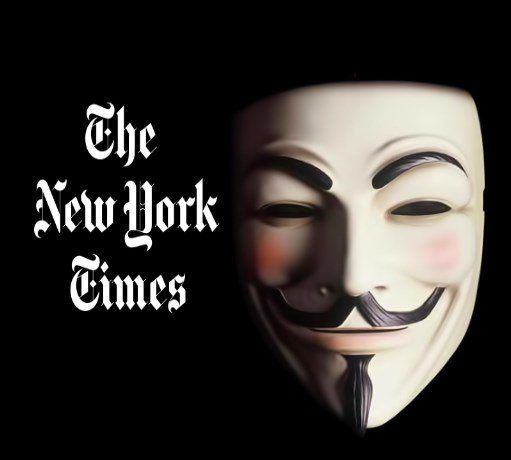

Has the New York Times turned into a latter-day Daily Worker, or are labor conditions in America becoming so bad that even the national paper of record is demanding social justice? A look at this past Sunday’s Section A revealed no fewer than three stories delving into the predatory practices of employers and financial players.
The front page led with an eye-opening investigation into how investment banks– including Goldman Sachs, JP Morgan Chase and Morgan Stanley – have reaped billions from stockpiling commodities in giant warehouses across the country.
The story, written by David Kocieniewski, focused on 27 mega-warehouses holding aluminum located around Detroit. (You remember Detroit – the city whose retired employees’ pensions are now threatened under bankruptcy proceedings, as banks and other creditors are being escorted to the front of the collection line?) The Times found that by needlessly shifting thousands of palettes of aluminum ingots from one warehouse to another,
» Read more about: From Goldman Sachs to Walmart to Urasawa: A NYT Trifecta »
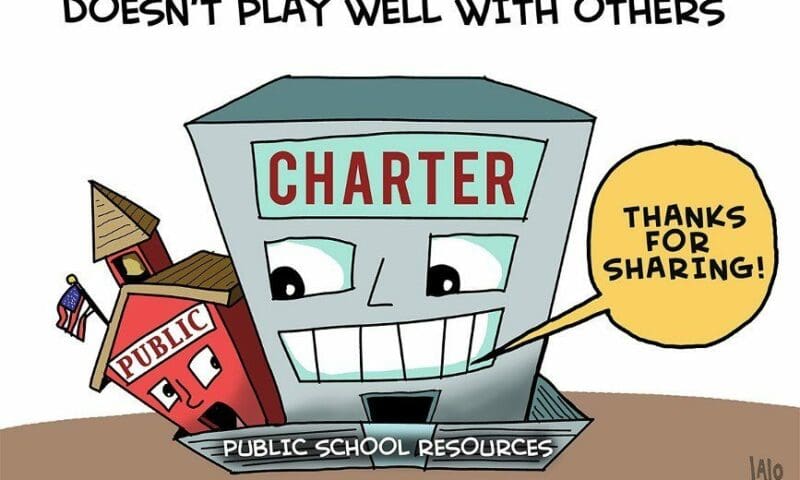
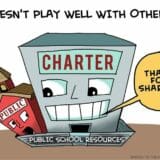
See Gary Cohn’s article, “Why Charter Schools Are Tearing Public Campuses Apart.”


— for the family of Trayvon Martin
This poem wants to write itself backwards.
Wishes it were born memory instead, skipping
time like a record needle stuck on the line
of your last second. You sit up. Brush not blood,
but dirt from your chest. You sit up. You’re in bed.
Bad dream. Back to sleep. You sit up. Rise and shine.
Good morning. This is the poem of a people united
in the uniform of your last day. Pockets full
of candy, hooded sweatshirt, sweet tea. This poem
wants to stand its ground, silence force
with simple words, pray you alive, anyone’s
son — tall boy, eye-smile, walk on home.
——————————————————–——————————————————–
Tara Skurtu is a Teaching Fellow at Boston University, a Robert Pinsky Global Fellow and recipient of an Academy of American Poets Prize.


Ever since the emergence of talking pictures, schools have been a major subject of both Hollywood movies and documentary films. One consistent theme of Hollywood portrayals of schools – from Blackboard Jungle (1955), Up the Down Staircase (1967) and Stand and Deliver (1988) to Mr. Holland’s Opus (1995), October Sky (1999) and Freedom Writers (2007) – has been the idealistic teacher fighting to serve his and her students against overwhelming odds, including uncaring administrators, cynical colleagues, a stultifying required curriculum that crushes the spirit of teachers and students alike, dilapidated conditions, budget cuts, unruly and hostile students, or students suffering from the symptoms of poverty or neglect. The underlying message is that while occasionally a rare teacher can light a spark in a few students, our public schools are failing most of the students they are supposed to serve. Most documentaries about education –
» Read more about: A Harsh Schooling: The War Against Public Education »


Helicopters hover like hellish hogs
of Armageddon:
an infra-red shakedown.
We are the enemy, the face on the radio;
burnt petals cluttering the sidewalk.
We are daylight’s demise, dancing between
discord & distrust. All is bitter harvest,
betrayal and bewilderment;
all is seed for the fields of retreat:
bullets punctuate every poem.
——————————————————–
Source: Trochemoche, published by Curbstone Press (1998).
Luis Rodrίguez has won numerous awards for his poetry, including the Poetry Center Book Award, a PEN Josephine Miles Literary Award, and a Paterson Poetry Book Prize. He is best known for the 1993 memoir of gang life, Always Running: La Vida Loca, Gang Days in L.A. (paperback by Touchstone Books/Simon & Schuster).


An old friend I’m back in touch with thanks to Facebook loves to rail against Facebook — on Facebook. When our electronic bond progressed to a real-world lunch, he lamented that he had joined Facebook for its networking promise, but has become unnerved by a growing sense that his Facebook Page belongs not to him but to, yes, Facebook.
I could relate. A bizarre posting or a stealth ad on Facebook can trigger a flash of disorientation. Does it emanate from a friend, a friend of a friend, a mutual friend, a frenemy posing as a friend, someone I “should get to know” or a multi-national corporation? How did those unflattering pictures of me insinuate themselves, unbidden, into my profile? And how can it be that I’m now, at this precise instant, listening — “on Spotify” — to a song I’ve never heard of?
It might be satisfying for counter-culture types to blow off steam by rebelling against a mega-corporation that markets itself as the hip vanguard of the communications revolution to mask its true establishment-promoting,
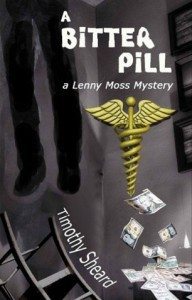
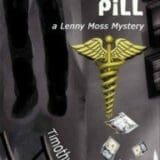
(Spoiler Alert: The last paragraph of this review of Timothy Sheard’s novel, A Bitter Pill, reveals plot endings.)
When a business-oriented company takes over the management of the James Madison Medical Center in Philadelphia, Pennsylvania, it is immediately clear that things are about to change, and not for the better. The sudden appearance of the Committee to Save James Madison – supposedly established by a group of disgruntled employees who don’t think the union has their best interests at heart, but in actual fact created by Croesus Health Care, the new owners of the hospital – is the first clue that the bosses are eager to crush the workers’ organization, fire staff and focus on the bottom line, service delivery be damned. In short order, everyone’s work life is turned upside down as a petition drive to decertify said union to “save jobs” leads to mayhem, murder and more.